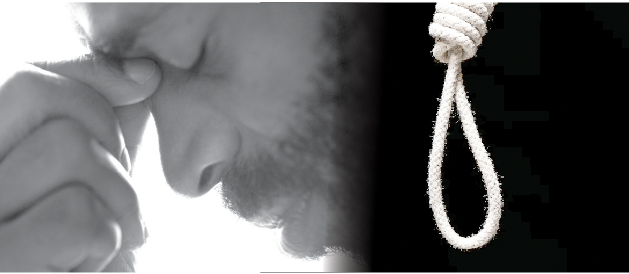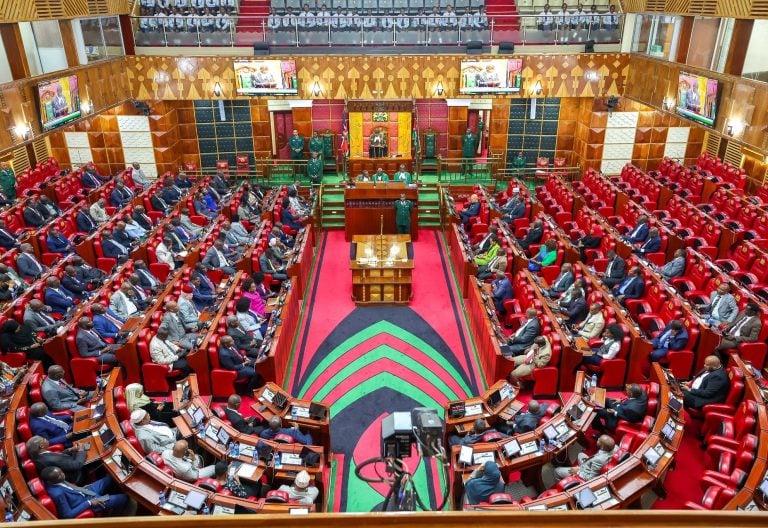How family, religion fail people with suicidal behaviour

Rebecca Kanana* had her life planned out. By 30 years, she wanted to have gotten a stable source of income and a working romantic relationship that would lead to marriage. So, when her expectations became unachievable, she felt a failure. She became suicidal.
Having come from staunch Christian family made mental health discussions impossible because more often, her family would term her as a ‘woman with no faith.’
The first time she attempted to end her life was in 2020 during the Covid-19 pandemic. At this time, she felt lonely. She could sense rejection from her family. The situation was exacerbated by social distancing guidelines meant to curb the spread of the virus; hence she wouldn’t seek solace from her friends.
“The outside world was closed. I was going crazy because if it meant talking to someone, it had to be in my house, which was impossible because I felt nobody understood me,” she recalls.
Not knowing what to do, Rebecca overdosed on some pills. “I don’t recall much about this day. My parents rushed me to the hospital after finding me unconscious. My mother kept on murmuring that a demon had possessed me and she would often say that I was pretending in order to seek attention,” she remembers.
As soon as she regained consciousness, she shares how her father prayed for her saying this was a way to ‘cast out demons.’
Thereafter, when she felt better and went to church, she got another shocker. “I was a choir member and a traffic marshall, roles that I was stripped. I thought this was extreme,” she says.
After realising she was mentally unstable, Rebecca decided to seek professional help.
Stigma hinders help
Chebet Birir, a mental health advocate says mental health is as important as physical health and so when someone is mentally unwell — have anxiety, depression, bipolar, schizophrenia, attention-deficit/hyperactivity disorder, among others— they should seek professional or medical help in the same way one seeks help when they have other illnesses.
“Our well-being encompasses the physical, emotional, spiritual and the mental spheres of our bodies and one cannot be okay when the other is not.
She adds that the society has a long way to go when it comes to ending the stigma around mental health issues, and that includes suicide.
Birir shares how it becomes harder for people who are struggling with suicidal thoughts and attempts to get help when everybody around them cannot accept and understand what they are going through.
“That is why most suicide victims ends up succeeding in ending their lives after several attempts, probably because they feel like death is the only option instead of living positively,” she says.
She highlights that society needs to stop the stigma and learn about suicide prevention instead of being judgmental toward people who are struggling with mental health.
Antony Mwangi, popularly known as Pastor Tee says, religions hold to strong beliefs that view suicide as a sin or a violation of the sanctity of life. They believe that human life is a gift from a divine creator.
“In many religious groups, it is believed that only the divine creator has the authority to give and take away life. In addition, suicide is often viewed as a violation of the commandment to “not kill” or “not murder” in religious texts such as the Bible,” he says.
Significant barriers
Furthermore, Pastor Tee says that suicide is often seen as a selfish act that causes pain and suffering for loved ones left behind. Religious teachings often emphasise the importance of selflessness and caring for others, and suicide can be viewed as a rejection of these values.
Birir emphasises that churches need to adopt a holistic approach to solving problems— which is prayer, preaching, counselling/psychosocial support.
“Church members and the clergy should also be educated and informed about mental health issues. I believe if this happens, then we will be able to solve the issue of rejection by the church and even save lives,” she says.
Geoffrey Wango, a psychologist, concurs adding that stigma associated with attempting suicide and the shame and guilt that often come with it can be significant barriers to seeking help for suicidal ideation or behaviour. The fear of being judged or labeled as “weak” or “crazy” can prevent people from reaching out to others for support or treatment.
“Research has shown that individuals who attempt suicide often face significant stigma and negative attitudes from others, including some healthcare providers, family members, and even themselves. This can lead to feelings of shame, guilt, and isolation, which can exacerbate the risk of suicidal behaviour,” he says.
Psychologists emphasise the importance of addressing stigma and promoting understanding and acceptance of mental health issues and suicide. This can be achieved through education, advocacy, and increasing access to mental health services and support.
“Seeking help for suicidal thoughts or behaviour is a sign of strength, not weakness. Individuals who have attempted suicide should not be blamed or shamed. Instead, they need support, compassion, and understanding as they work towards recovery and healing,” he shares.












